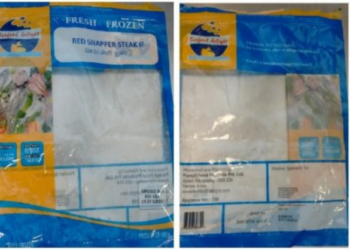Hello, and welcome to the coolest community in freight! Here you’ll find the latest information on warehouse news, tech developments and all things reefer madness-related. I’m your controller of the thermostat, Mary O’Connell. Thanks for having me!
All thawed out
(Photo: Jim Allen/FreightWaves)
The global cold storage construction market has grown significantly over the past decade, and this trend is expected to continue in the coming years. The growth in the industry has led the global cold storage construction market to be valued at $9.1 billion and expected to reach $26.2 billion by 2031, according to an Allied Market Research report. The increasing demand for frozen and fresh food, biotechnology and pharmaceuticals are some of the key drivers for the high demand for the industry.
Taking advantage of the demand for the cold storage market is Koch Foods. The plan to build a new food processing plant in Fairfield, Ohio, has moved into action. The new facility will include 145,000 square feet of “ready-to-eat” process areas; 80,000 square feet of minus-10-degree freezer warehousing; 50,000 square feet of 28-degree cooler warehousing; and 10,000 square feet of dry warehousing. The cool part about this development is that it will happen around the existing manufacturing process so there are no major delays.
Temperature checks
In keeping with tradition, the White House held its annual Easter egg roll this year. In light of the avian flu outbreak, many were suggesting that the eggs be swapped for potatoes or rocks. After some creative pitches to the first lady, eggs ultimately won out. This year, given supply chain issues, the American Egg Board created a special exhibit that takes you through the journey of the egg from farm to plate as well as farm to the Easter egg roll.
Emily Metz, CEO and president of the American Egg Board, said in a Roll Call article, “You can’t have Easter without eggs. Eggs are such an integral part of Easter and Passover celebrations and a part of so many longtime family traditions. I don’t think painting rocks or potatoes will catch on — there’s no replacement for eggs for celebrating or eating during this season.”
As for the egg supply, that came from North Carolina-based Braswell Farms. It raised and hand dyed all 30,000 eggs used at the White House this year. The American Egg Board, in addition to helping get the 30,000 eggs to the lawn, will make a donation of 30,000 eggs to the Capital Area Food Bank in Washington.
Food and drugs
They don’t practice Santeria, they ain’t got no crystal ball, the band Sublime had a million dollars and made its own line of legal cannabis for the California market. In a partnership between Sublime and Elevated Global Supply, a multinational consumer package design and fulfillment company that specializes in cannabis, the new product REEFERS is headed to the market. Cannabis has to be stored in a very specific way. Temps around 60 with very little moisture. Moisture is cannabis’ mortal enemy.
The band might have a little bit more than loving as it is expanding into branded glass jars and packaging for cannabis flowers, assorted tins, containers and wrappers for tinctures, concentrates and edibles. Brian Pyun, lead for sales and design for EGS, said in a news release, “The REEFERS packaging is designed to engage consumers, enhancing their product experience with art, color, and portability. We do this remembering that our packaging solution must also preserve and protect the quality of the cannabis while ensuring all packaging elements deliver on time.”
Cold chain lanes
(SONAR Ticker: AGRATE.LAXDAL, AGRATE.FATDAL)
Produce truckload shipments can be a massive disruptive force to refrigerated capacity in the spring as harvests hit their peak out of California. Produce spoils quickly and needs to be moved quickly to have any return. Pair that with the fact California has had the wettest winter in decades, putting many harvests at risk for reduced yields. This should put additional pressure on rates, but it is happening as national truckload capacity is historically loose, meaning spot rates are unlikely to increase at the start of the traditional produce season.
We could potentially be a few months out from peak activity depending on how farmers have been able to handle the above-average rainfall. So far, rates have been falling consistently out of central and Southern California. Los Angeles-to-Dallas rates are still about 25% above the pre-pandemic March 2019 levels but are down 31% from last year. The overriding downward trend on rates will more than likely keep rates at bay when harvests do hit.
Is SONAR for you? Check it out with a demo!
Shelf life
Dole pivots to a health food company
Veteran driver explains what it takes to haul a reefer trailer
OK with the change in management? Shoot me an email with comments, questions or story ideas at moconnell@freightwaves.com.
See you on the internet.
Mary
If this newsletter was forwarded to you, you must be pretty chill. Join the coolest community in freight and subscribe for more at freightwaves.com/subscribe.
The post Running on Ice: More storage for more Easter eggs appeared first on FreightWaves.















